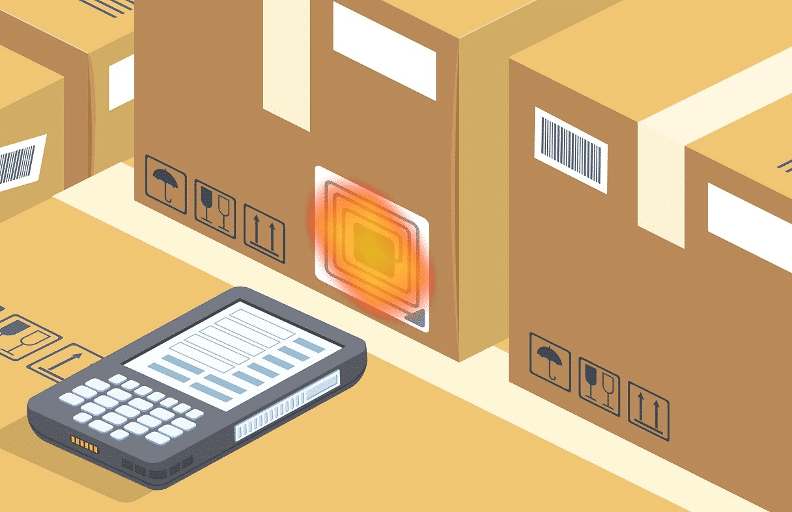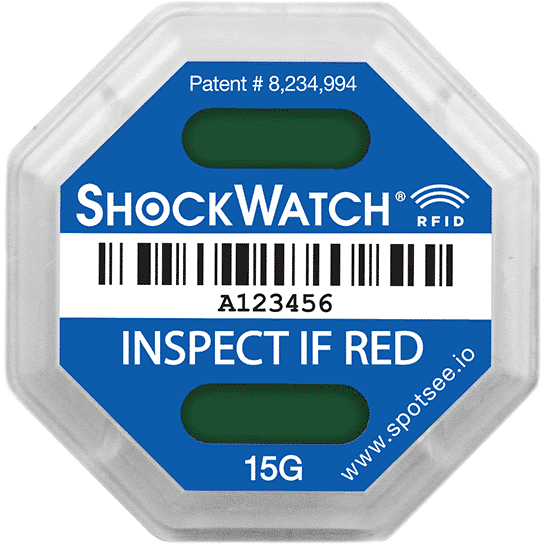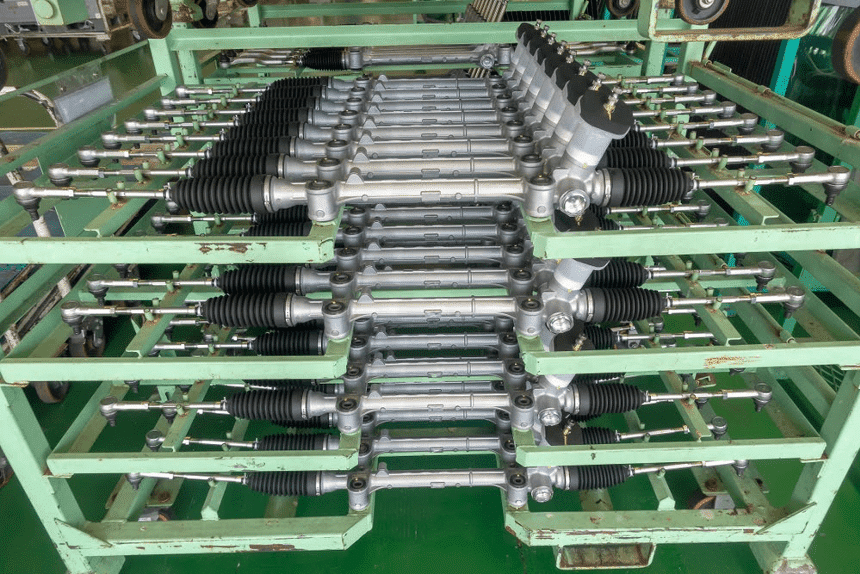4 Ways RFID Supply Chains Optimize Automotive Manufacturing
As average per capita income continues to rise, revenue for the automotive industry continues to rise. However, competition continues to grow in the industry and price competition within the industry limits profits for automobile companies.
To remain competitive, auto manufacturers need to make sure that their operations are running efficiently and minimize wasting resources. Managing the logistics of the automotive supply chain and manufacturing process is complex as automobiles require thousands of parts, many of which are sensitive and must be handled with care. That’s where implementing radio frequency identification (RFID) in the supply chain optimizes the automotive manufacturing process.
 Leading auto manufacturers are using technology to keep track of inventory flow and make sure that operations run smoothly. RFID is one key technology that enables companies to effectively manufacture automobiles and compete with other automakers. RFID-integrated supply chains allow manufacturers to identify damaged parts as shipments are scanned along their journey. This saves the manufacturer time and money, since they can avoid installing a damaged component — and can identify opportunities to optimize the supply chain in ways that reduce damage events from occurring.
Leading auto manufacturers are using technology to keep track of inventory flow and make sure that operations run smoothly. RFID is one key technology that enables companies to effectively manufacture automobiles and compete with other automakers. RFID-integrated supply chains allow manufacturers to identify damaged parts as shipments are scanned along their journey. This saves the manufacturer time and money, since they can avoid installing a damaged component — and can identify opportunities to optimize the supply chain in ways that reduce damage events from occurring.
SpotSee®’s ShockWatch® RFID helps automotive companies track damage throughout the supply chain and locate affected inventory. Each ShockWatch RFID indicator contains a passive RFID tag that alarms if impact thresholds are exceeded. The indicator also turns red for the area without RFID infrastructure. Standard RFID scanners are used to scan these devices so that car manufacturers can remove damaged inventory before it enters the assembly line.
So how are leading car manufacturers using RFID to streamline their operations? Here are 4 ways that RFID is revolutionizing how automakers produce cars.
1. RFID Shipping Solutions
RFID technology makes it easy to track all components within a supply chain from start to finish. Passive RFID tags let manufacturers know exactly where their inventory is as it passes through RFID-scanning gates, and auto makers can compare the RFID data to the data in their ERP system to make sure shipment data matches up with what is expected.
In short, RFID supply chain technology like ShockWatch RFID can help car manufacturers with the following:
- Getting the right inventory to the right place – RFID automation allows companies to track thousands of items per second with a range of up to 30 feet. Automated scanning enables companies to minimize human error and get the right inventory to the right place efficiently.
- Track directional movement of inventory – Tracking movement allows warehouse managers to monitor forklift loads and manage the flow of inventory with greater flexibility.
- Get real-time data on your inventory and where it is going – Real-time data enables auto manufacturing managers to make faster decisions. As RFID tags like ShockWatch pass through gates, managers can know if inventory has exceeded impact thresholds so that it can be inspected for damages. This information allows them to hold handlers accountable and find ways to improve logistics.
2. Production Flow Tracking
One big challenge with auto manufacturing is making sure that the proper components are at the required location in time. RFID supply chain technology can help operators throughout the automotive supply chain ensure that all parts are at the right location so that production runs smoothly.
Logistics managers can track inventory through their global automotive supply chain to make sure that items are on schedule to arrive when expected and make adjustments in real-time if complications arise. Warehouse managers can also use RFID technology to manage the flow of work-in-process (WIP) inventory within the manufacturing facility.
3. Non-conforming Materials (NCM) Management
Non-conforming materials complicate production planning as inventory levels do not accurately reflect what is available for production. Manually sorting through defective and non-compliant materials can slow down production and can take days to complete.
Combining an effective RFID tag system with NCM automation software can improve NCM management efficiency and reduce processing times by as much as 10 times. A good NCM automation system tracks all data for each item regarding non-compliance, allowing for easier data analysis and decision making.
As non-conforming items are identified, they can be quickly disposed of or placed into the proper workflow. Quick detection also allows manufacturers to obtain suitable replacement parts more quickly so that production can commence on schedule.
4. Lot Management
RFID technology aids in lot management by enabling operators to quickly identify the correct vehicle, even when it is in a lot with hundreds or even thousands of other identical vehicles. Passive RFID tags with unique serial numbers can be associated with each car’s unique VIN number and production history.
RFID devices allow operators to locate specific vehicles quickly so that they can be worked on or delivered to the correct location. Using RFID for lot management improves logistics and saves time and costs by making it faster and easier for operators to find specific vehicles.
Optimize Your RFID Supply Chain with SpotSee
SpotSee’s products can help automotive manufacturers and others along the supply chain reduce inventory management costs, avoid production delays, and remove the biggest production headaches.
 To remain competitive in today’s automotive manufacturing industry, optimizing RFID technology is a must. SpotSee’s ShockWatch RFID in a passive UHF RFID tag that requires no batteries or wires and was designed with ease of use in mind. ShockWatch RFID is serialized and tamper-proof. With ShockWatch RFID, you can effectively track and manage your inventory and identify where damage is occurring within your supply chain.
To remain competitive in today’s automotive manufacturing industry, optimizing RFID technology is a must. SpotSee’s ShockWatch RFID in a passive UHF RFID tag that requires no batteries or wires and was designed with ease of use in mind. ShockWatch RFID is serialized and tamper-proof. With ShockWatch RFID, you can effectively track and manage your inventory and identify where damage is occurring within your supply chain.
ShockWatch implementation is simple and can revolutionize your car manufacturing operation. Fill out the form below to learn more about how SpotSee can help your business and request a free demo.








